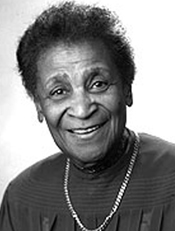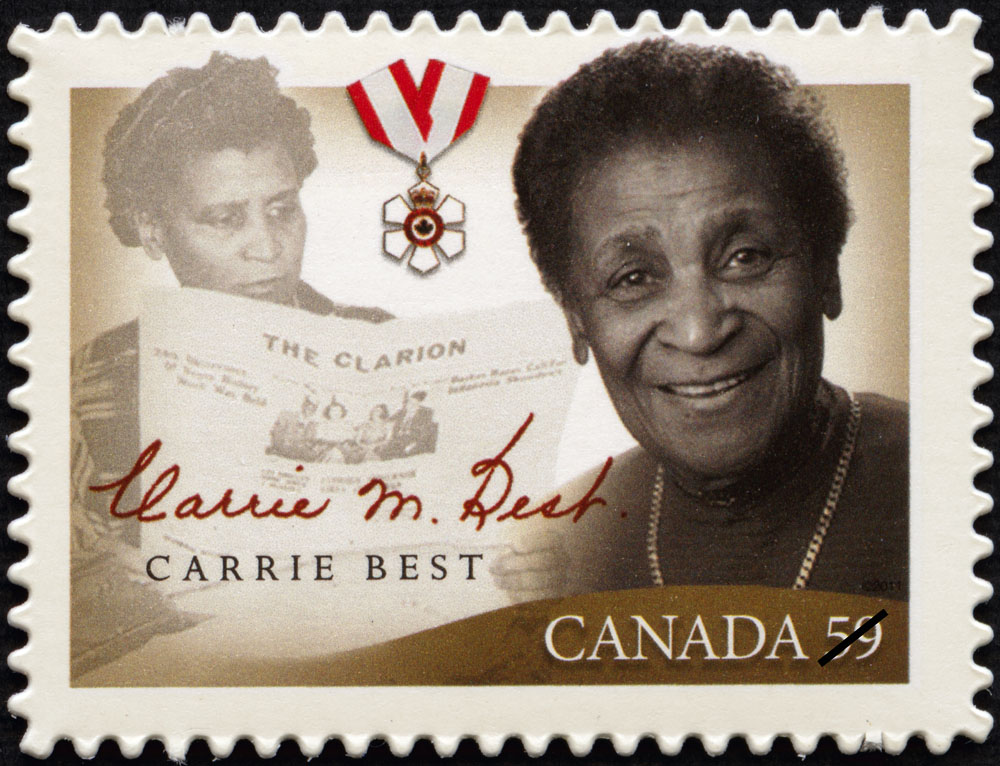Black Community Engagement Person of the Month – Carrie Best
Carrie Mae Best – Order of Canada, Order of Nova Scotia, Honourary Doctor of Laws, Honourary Doctor of Civil Law (1903-2001)
Carrie Best was a human rights activist, author, journalist, publisher and broadcaster born on March 4th, 1903 in New Glasgow, Nova Scotia. Growing up, Best and her two brothers were encouraged by their parents to study the history of African-Canadians and be proud of their Black heritage. Although they had not received good schooling themselves, Best’s parents emphasized the importance of education.

Growing up in a period of extreme racial discrimination, she finished high school only to discover there were no meaningful career opportunities for Black women. Bearing witness to daily incidents of racism motivated her to get involved in civil rights activism. Best knew from an early age that she would not accept the restrictions to which Blacks were subjected. She began writing poetry at the age of four and in her teenage years she wrote and submitted opinion letters to the editors of local newspapers. Unhappy with the racial stereotypes portrayed in popular books and local culture, Best sought out the work of African-American poets and historians.
She co-founded The Clarion in 1946, one of the premier newspapers owned and published by Black Nova Scotians. Best used the paper to call for an end to racial discrimination and to advocate for the rights of Black and Indigenous people. This included discrimination within Nova Scotia’s justice system when the province began adopting American laws that sought to gag/silence Africans and Indigenous peoples, despite slavery already having been abolished in Canada.
In 1942, she filed a civil lawsuit against New Glasgow’s Roseland Theatre and its owner in an effort to challenge the segregated seating policy. In 1968, she was contracted by The Pictou Advocate to write a weekly column entitled “Human Rights”, which ran until 1975. Best used her sharp pen to promote Indigenous rights, improve living conditions on reserves, and advance basic civil rights for all.

Throughout her long career, she continued to raise her voice in support of positive change. For her courage and inspiration, she was recognized with numerous awards from Nova Scotian universities, including an Honourary Doctor of Laws (LLD) from St. Francis Xavier University in 1975 and an Honourary Doctor of Civil Law (DCL) from University of King’s College in 1992. A postage stamp in her honour was released in 2011. She passed away on July 24, 2001 at home in New Glasgow.
References
McLeod, Susanna. Carrie Best: Human Rights Hero. Donald Moore https://donaldmoorecanada.com/carrie-best/#:~:text=Human%20Rights%20Columnist,basic%20civil%20rights%20for%20all.
Hart, Locke Jonathan. 2021. “The Mapping of Center and Periphery, and the Geography of Otherness.” Primerjalna književnost (Ljubljana). Vol 44.3 Government of Canada. Carrie Best, 1903-2001, at https://www.canada.ca/en/women-gender-equality/commemorations-celebrations/women-impact/human-rights/carrie-best.html
Hamilton, Sylvia. Carrie M. Best: Champion for Human Rights, at https://www.cinemapolitica.org/film/carrie-m-best-champion-for-human-rights/
Canadian Broadcasting Corporation. 2021. “N.S. journalist, activist Carrie Best honoured in Google Doodle”, at https://www.cbc.ca/news/canada/nova-scotia/carrie-best-google-doodle-1.6289479
Photos Courtesy Of